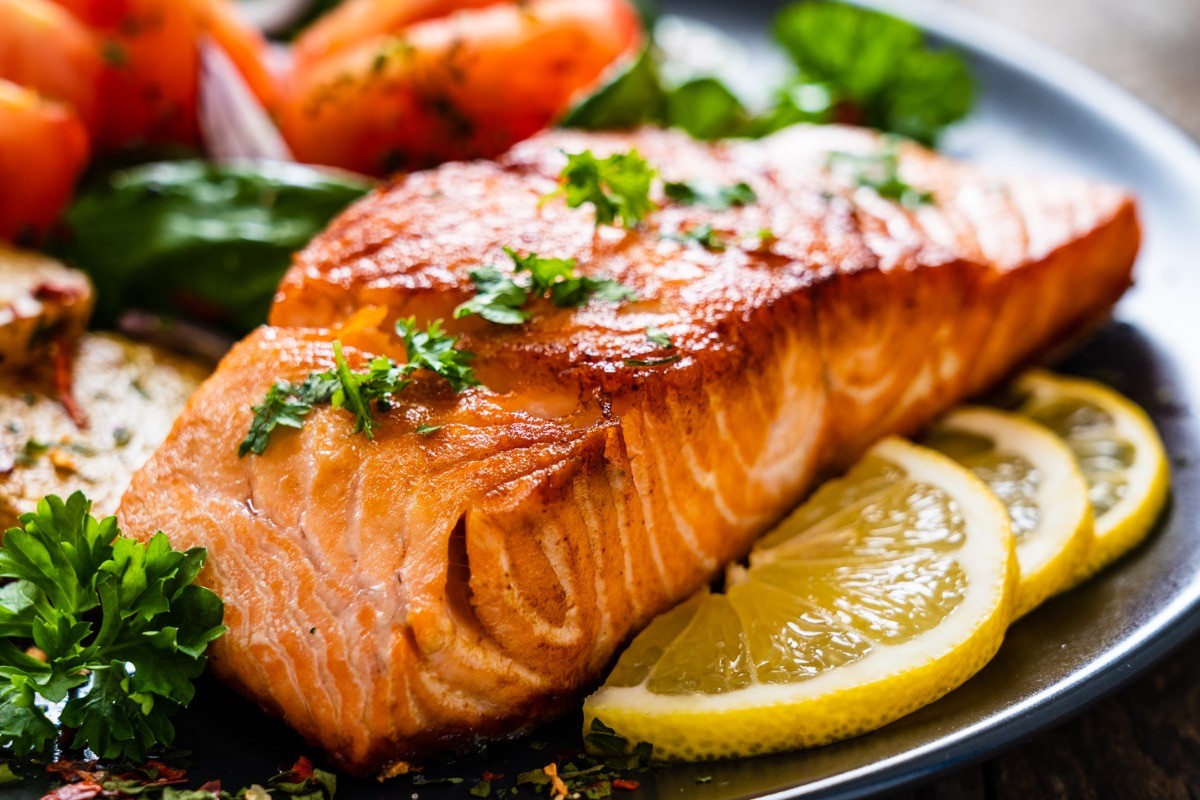The 5 Secrets to Losing Weight When Nothing Else Works

If you’ve been trying and failing to lose weight, it might be time to take a step back and reassess your methods. Even if all the all the correct boxes are ticked, certain habits or lifestyle choices can make weight loss difficult if not impossible. Yo-yo dieting does not work, even if it’s successful in the short term. Long-term habits will make all the difference for steady, effective weight loss and improved fitness. “Losing weight isn’t a linear experience. You’ll have ups and downs. But if the overall trend is downward, that’s when you know you’re having success,” registered dietitian, exercise physiologist and psychologist David Creel, PhD, tells the Cleveland Clinic. “That’s why we have to think about how to lose weight as a lifestyle.” Assuming there are no underlying health conditions preventing your weight loss from happening (and you should absolutely speak to a doctor if you even suspect it), certain factors can make a huge difference. Here’s what the experts say.
RELATED: The 7-Day Fast Track to Weight Loss Success.
1
Knowledge Is Power

The bedrock of any weight loss routine is ensuring you are working with a calorie deficit. Are you aware of how many calories you are taking in vs how many you are burning off? If not, you’re already at a disadvantage. “We’re all unique beings, and our bodies have different needs,” says Dr. Creel. “But at the end of the day, the most basic concept of losing weight is that you need to achieve a calorie deficit.” If we take in more calories than we need, our body will store them as fat—so it’s important to know what you’re working with. “When we know how many calories you’re burning, we might suggest getting about 500 calories a day fewer than that,” says Dr. Creel. “That will typically yield about a pound of weight loss per week. But really, it should be a more individualized approach.”
2
Focus on Protein

Getting enough good quality protein will not only encourage higher calorie-burning through increased thermogenesis, but satiety as well. “A 2020 study in the Journal of Nutrition found that high-protein diets were associated with greater success in maintaining weight loss,” says Kristin Kirkpatrick, MS, RDN, via TODAY. “The study showed that having more protein often counteracted the process of adaptive thermogenesis — a state where the body adapts to a new weight by altering energy expenditure. An easy way to up your protein intake is to add some kind of protein to every meal and snack. For example, consuming eggs whites at breakfast, hummus for a snack and wild salmon for dinner.”
3
Get Help

It is vital to surround yourself with people who support and encourage you on your weight loss journey, and to avoid those who would seek to undermine your progress. “If you live with someone else, getting their support can be vital, so you’re not exposed to the temptation of unhealthy foods at home,” senior dietician Victoria Taylor tells the British Heart Foundation. “Ask them to support you or even lose weight with you. Group support works well for some people. There’s some evidence that joining a slimming group leads to more successful weight loss than those who don’t join.”
RELATED: 50 Genius Weight-Loss Motivation Tricks.
4
Avoid Sugary Beverages

Avoid drinking your calories. “Liquid calories simply don’t fill you up in quite the same way as real food,” say Jaclyn London, M.S., R.D., C.D.N. and Amy Fischer M.S., R.D., C.D.N., via Good Housekeeping. “Skipping sugary beverages is often the easiest way to lose weight faster, and as a bonus, it’s good for heart health and diabetes prevention, too. So monitor your intake of juice, soda, sweetened coffee and tea and alcoholic beverages. If you consume one of each of those beverages during the day, you’ll have taken in at least 800 extra calories by nighttime — and you’ll still be hungry (incidentally, alcohol may even suppress the metabolism of fat, making it tougher for you to burn those calories).”
5
Stay Focused and Be Patient

Keeping your eyes on the prize, so to speak, is important because this is a permanent lifestyle change and not a short-term issue. “An ‘ideal’ weight can take a while to achieve and may seem unattainable at times,” Taylor says. “Don’t feel disheartened if your weight loss is slow or you hit a plateau. Maintaining even a small weight loss is beneficial for your health in the long term and something to be proud of. So keep it up! “